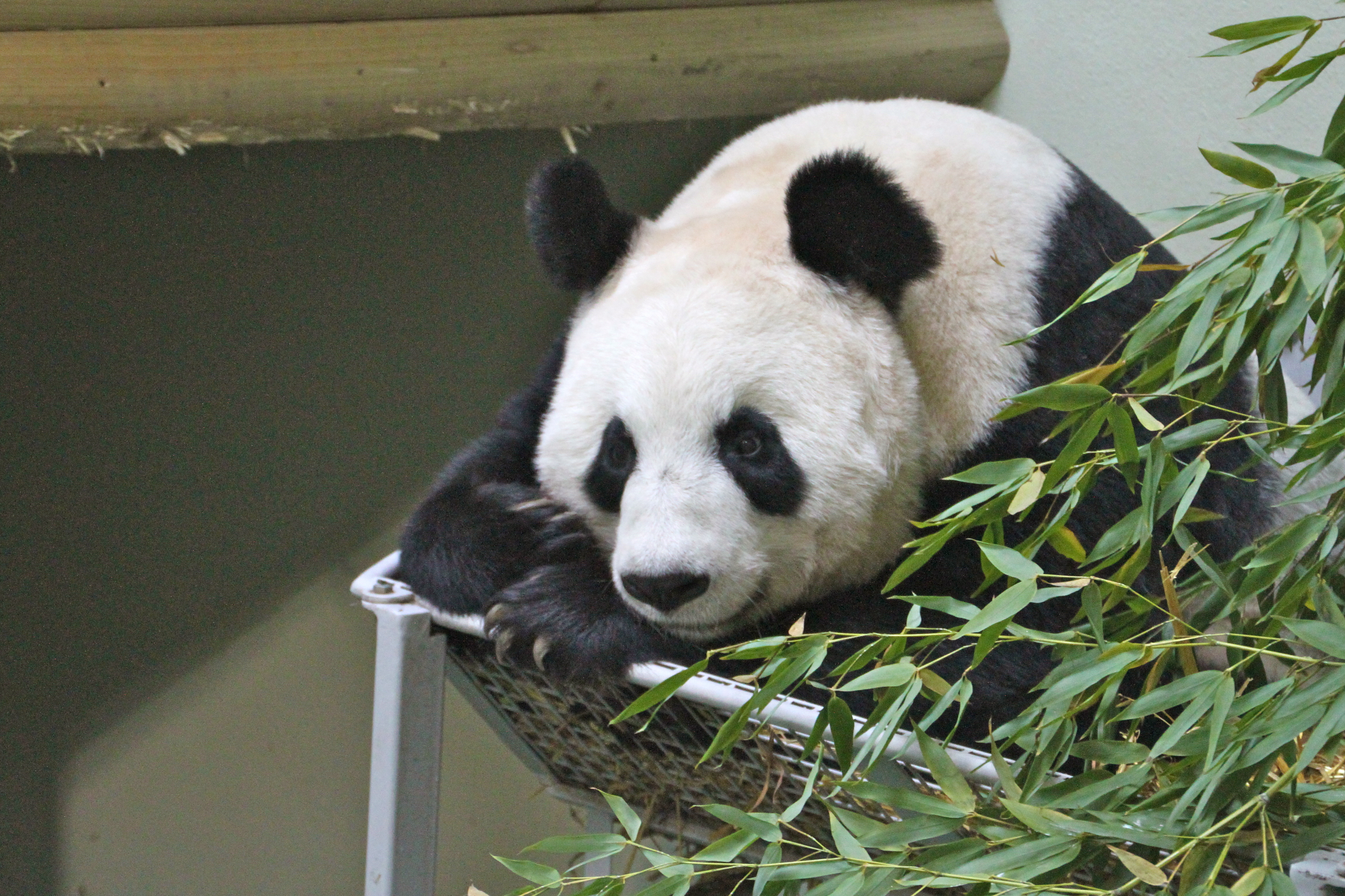Tian Tian is not pregnant
Experts at the Royal Zoological Society of Scotland can now confirm that they no longer believe Edinburgh Zoo’s female giant panda, Tian Tian, is pregnant. All of her hormonal and behavioural signs now indicate that she had conceived and carried a foetus until late term, but then lost it.
Chris West, Chief Executive Officer for the Royal Zoological Society of Scotland said:
“We are all saddened by this turn of events after so many weeks of waiting. Timings are difficult to pinpoint at this moment, but we had a meeting this morning where Tian Tian’s behaviour and hormone results were reviewed and have come to the conclusion that it is very likely she has lost the pregnancy.
“Up until now, Tian Tian has consistently shown signs of pregnancy – she passed a mucus plug around mid-September and began producing colostrum. She also experienced a prolonged secondary-rise in progesterone. However, the veterinary team has noticed a significant decline in the amount of colostrum being produced and over the last few days she has returned to the normal eating and behavioural patterns of a non-pregnant panda.
“Such a loss has always been in our minds as a very real possibility, as it occurs in giant pandas as well as many other animals, including humans. Our dedicated team of keepers, veterinary staff and many others worked tirelessly to ensure Tian Tian received the best care possible, which included remote observation and closing the panda enclosure to visitors to give her quiet and privacy. We are conducting a detailed review of the scientific data collected, but I am totally confident that we did everything it was possible to do. I would like to thank our Chinese partners the China Conservation and Research Centre (CCRCGP) and the China Wildlife Conservation Association (CWCA), as well as our international science colleagues for their support and guidance throughout this period.
“The majority of research centres and zoos with giant pandas around the world have not successfully bred until the third or fourth year and what we have achieved considering we have had giant pandas for less than two years is immense. New hormone research is beginning to indicate that lost pregnancies are more common in giant pandas than first thought, though at the moment no one knows why.
“We are working as part of a global giant panda conservation programme and will continue to work closely with our international colleagues. The research and work we do here goes towards better understanding giant panda biology, education and conservation in the wild, as demonstrated by the Giant Panda Research Symposium held here in September and the Jaguar Land Rover China partnership in education. Giant pandas are brilliant ambassadors for other endangered species like Scottish wildcats, basking sharks, bumblebees and butterflies. We exist to safeguard species from extinction. We will carry on and are confident we will succeed.
“The panda enclosure will remain closed until the end of the week, in order to give Tian Tian time to get back into her routine and provide her keepers with the chance to recuperate after this long period of waiting.”










